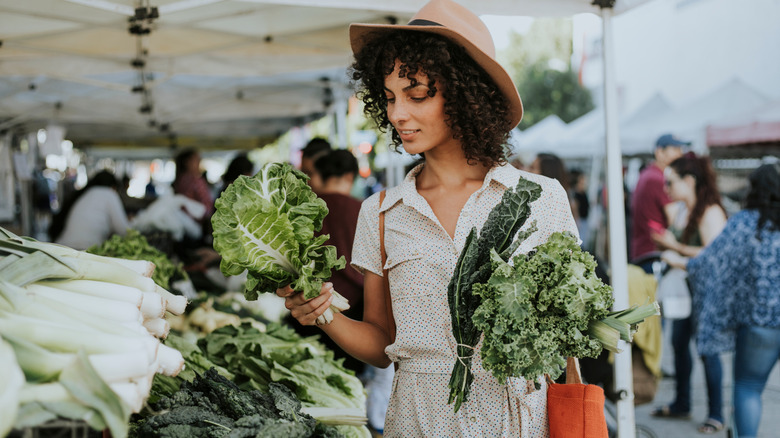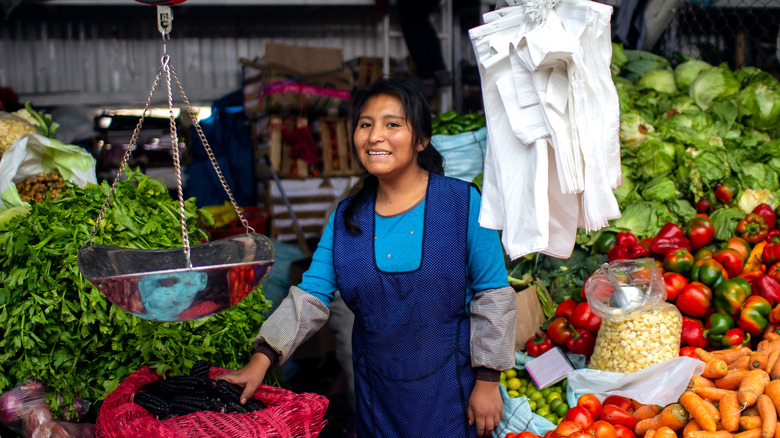The Health Benefits Of Shopping At A Farmers Market
It's easy to get excited if you've spotted a local farmers market in your area. From the beautiful displays and pleasant-smelling food to the fun-loving ambiance — farmers markets cater to anyone who loves or grows food. If you've ever found yourself contemplating the health benefits of shopping at a farmers market, you've got lots of company.
Buying from a farmers market may positively impact the nutritional benefits of your food. "Produce from local farmers has spent more time on the vine, on the tree or in the ground, so you get better taste and more nutrients," explains Melinda Cater, a dietitian at Johns Hopkins Medicine. This is especially the case for fruits and veggies at farmers markets. From farm to sale, fruits and veggies typically have a shorter distance to travel which means they also maintain more minerals and vitamins, points out Cater. Not to mention there's often more variety and seasonal treats too.
Believe it or not, it also positively impacts the health of the community. The Farmers Market Coalition explains that markets help increase community access to fresh, nutrient-dense food, while also supporting healthy living practices. For instance, customers can chat with vendors about how to prepare healthy dishes or learn about farming techniques.
Additionally, local markets preserve the environment and strengthen the local economy (via UPMC My Health Matters). This is because markets tend to be extremely sustainable, while also putting money back into the pockets of the community.
How to keep your veggies and fruits fresh after shopping
After spending the day shopping at a farmers market, it's important to store your food properly to help it last longer. If you're buying foods that require refrigeration, especially during the hotter months, it's best to store these right away. Melinda Cater suggests carrying an insulated cooler while shopping to keep these products — meat, fish, poultry, dairy, and eggs — cool until you return home (via Johns Hopkins Medicine). Then immediately toss them in the fridge.
Veggies have a slightly similar approach. While they don't need to be kept cool when shopping, consider refrigerating all green veggies. This includes leafy greens, Brussels sprouts, celery, broccoli, lettuce, green beans, and more, explains the owner of Smolak Farms, Michael Smolak, to The Boston Globe. But, if your veggies have an outer skin, it's safe to leave it on the counter, shares Smolak. Some of these veggies include onions, garlic, sweet potatoes, and cucumbers.
Additionally, fruit may also need to be refrigerated and rinsed after buying. Raspberries, blueberries, and other berries should be rinsed and lightly dried before storing them in the fridge, according to Johns Hopkins Medicine. Make sure that the container is breathable so water doesn't collect and pick out any moldy pieces. Similarly, fruit with hard shells should also be rinsed to get rid of unwanted germs. Think melons and pineapple.


